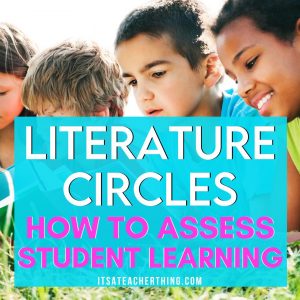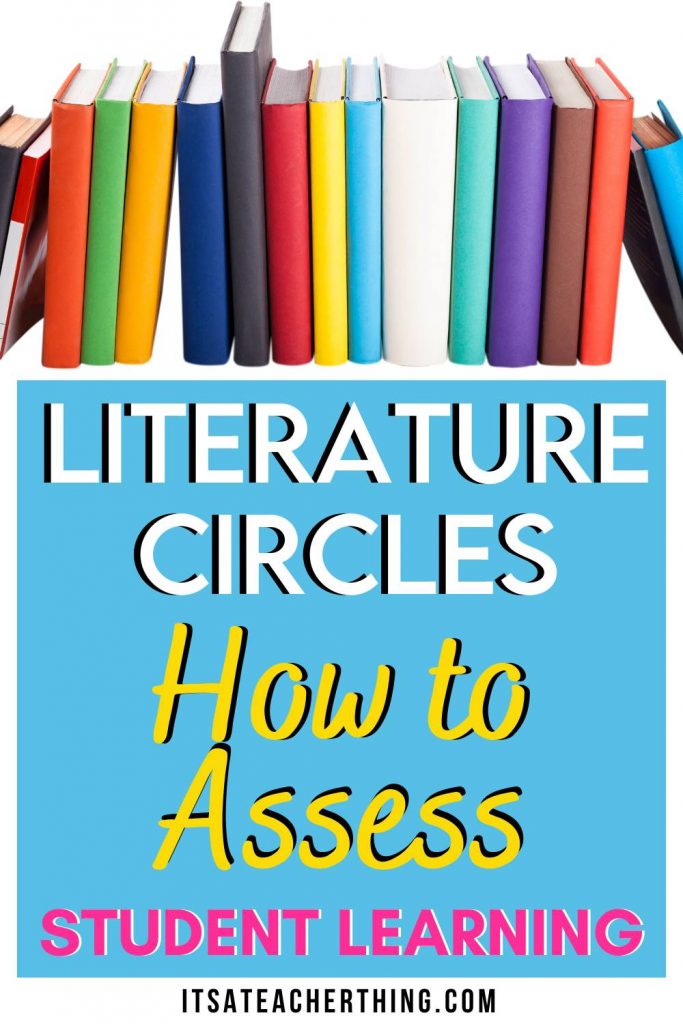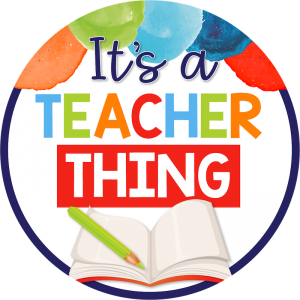Literature circles assessments go beyond traditional tests and quizzes. It involves evaluating students’ comprehension, critical thinking skills, and ability to collaborate effectively. Here are some effective literature circle assessments to use in your classroom:

6 Literature Circles Assessments for Assessing Student Learning
1. Observation: Observe students’ participation and engagement during literature circle discussions. Take note of their active listening, use of evidence from the text, and contributions to the group’s understanding. This formative assessment provides valuable insights into students’ comprehension and critical thinking skills, and it may be the most important type of assessment you use during literature circles. Here are forms, rubrics you’ll need for literature circles observations and everything else you’ll need.
Using observation as assessment requires that you free up your time in order to sit with each group. This can be done if you stagger meetings, but if you hold your literature circle meetings on the same day, you need a strategy. Always have your observation forms with you, because a quick stop and listen can tell a lot. Just remember to make note of it. If you stagger start time, this can help. One group can be preparing for the meeting while another is meeting. When that group finishes, they read toward the next page goal.
Remember, you don’t need to assess everyone the same day. Spreading it out over your meetings helps, but you can also ask for other adults to participate in the meetings. Parents, grandparents, members of the community, the librarian, older siblings, even students from higher grade levels can sit in on literature circles meetings.
2. Group self-assessment: Encourage groups to reflect on their own performance and provide feedback to one another. Ask students to evaluate their contributions, their ability to fulfill their assigned roles, and their overall level of engagement. This self-assessment encourages students to reflect and take ownership of their learning, and it helps with keeping students on task.
3. Individual reflections: Assign individual reflections where students can express their thoughts, key takeaways, and connections they made during the literature circle discussions. These reflections can be journal entries, blog posts, or short written responses on pages you have in a packet (as short as a few sentences). Individual reflections provide insight into a student’s understanding and growth. See this literature circles unit that has everything you’ll need to run effective classroom book clubs.
4. Performance tasks: Create performance tasks that require students to apply their understanding of the text in a creative or analytical manner. This can include writing a character analysis, creating a visual representation, or presenting a persuasive argument related to the text.
Consider brainstorming a variety of possible tasks and letting students pick. You can also have groups complete a literature circle performance task, with each member assigned to a specific part. Performance tasks allow students to demonstrate their comprehension, critical thinking, and creativity.
5. Rubrics: Develop rubrics that outline the criteria for successful participation in literature circles. These rubrics can assess students’ ability to listen actively, contribute to discussions, provide evidence from the text, and engage in respectful dialogue. Rubrics provide clear expectations for students. Be sure to review the rubrics with students, so they know what’s expected. This blog post on students roles and responsibilities during literature circles will help you with assessments.
6. Comprehension Tests: Find shorter comprehension tests for the books you’ve chosen. These tests give you another look at student understanding. Keep them short and make them easy to grade because your most important assessment comes with observation.
By utilizing a variety of assessment methods, you can gain a comprehensive understanding of students’ learning and growth within literature circles. Assessments should focus not only on content knowledge but also on the development of critical thinking skills, collaboration, and the ability to listen and communicate.
Pin this blog post to a relevant board for reference.



Leave a Reply